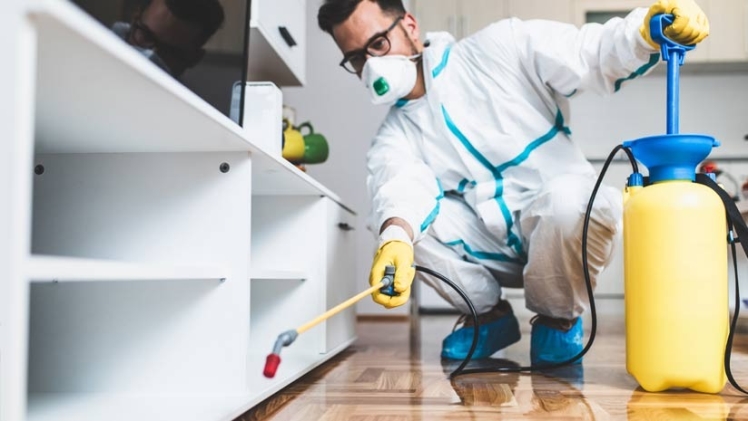Pest control is necessary to maintaining a clean, safe, and healthy living environment. As homeowners, we are all too familiar with the unwelcome presence of various pests, from insects to rodents. This comprehensive blog will delve into Melbourne pest control, exploring the importance of pest management, common pests that plague homes, preventive measures, and effective strategies to keep your living space pest-free.
The Importance of Pest Control
Pests can infiltrate our homes through cracks, crevices, and hidden entry points, making themselves right at home. Beyond being a nuisance, pests pose several significant threats:
Health Risks: Many pests can carry and transmit diseases. Cockroaches, for example, are known to spread bacteria and allergens, while ticks and mosquitoes are vectors for diseases like Lyme disease and West Nile virus.
Property Damage: Pests can cause substantial damage to your home’s structure, furniture, and belongings. Termites chew through wood, rodents gnaw on electrical wiring, and carpenter ants weaken wooden structures.
Allergies and Asthma: Pests, notably dust mites, cockroaches, and rodents, can worsen allergies and asthma symptoms, particularly in children and individuals with respiratory conditions.
Psychological Impact: Pests can induce stress, anxiety, and sleep disturbances. The constant presence of unwanted creatures in your home can be mentally taxing.
Common Household Pests
For successful pest management, it’s vital to have a clear understanding of the pests you’re contending with. Here are several prevalent household pests to be aware of:
Ants: Ants are a persistent nuisance, often invading kitchens and pantries for food.
Cockroaches: These hardy insects are known for their adaptability and the diseases they can transmit.
Rodents: Mice and rats are notorious for damaging property and spreading diseases.
Termites: Frequently known as the “quiet underminers,” termites possess the capacity to cause substantial harm to the structural stability of your home.
Spiders: While most household spiders are harmless, their presence can be unsettling for many.
Bedbugs: These tiny bloodsuckers can cause itchy bites and a great deal of discomfort.
Mosquitoes: Known for their itchy bites, mosquitoes are also vectors for various diseases.
Flies: These insects can spread bacteria and diseases as they land on food and surfaces.
Preventive Measures
Preventing pest infestations is far easier and more cost-effective than dealing with established ones. Here are some preventive measures to keep pests at bay:
Maintain Cleanliness: Keep your home clean and free of crumbs, food debris, and standing water. Regular cleaning reduces the attraction of pests.
Seal Entry Points: Identify and seal any cracks, gaps, or openings in your home’s structure. This includes windows, doors, and any potential entry points for pests.
Proper Food Storage: Keep your food in tightly sealed containers and ensure quick cleanup of spills and crumbs. It’s also essential to seal pet food for the same reason.
Regular Maintenance: Maintain your home’s exterior by trimming shrubs, clearing debris, and keeping a tidy yard to reduce hiding places for pests.
Pest-Resistant Landscaping: Opt for and care for plants that are resistant to pests to lower the chances of garden infestations.
Effective Pest Control Strategies
When preventive measures aren’t enough, employing pest control strategies to address infestations may be necessary. Here are some effective methods:
Chemical Pest Control: Chemical pesticides can be used cautiously, as they can have health and environmental implications. Trained professionals should apply these.
Biological Pest Control: Beneficial organisms, such as ladybugs, parasitic wasps, and nematodes, can be introduced to your garden to control specific pests naturally.
Traps and Baits: Mechanical traps and bait stations can effectively capture or poison pests like rodents and insects.
Professional Pest Control Services: Brisbane pest control professional have the training and equipment to efficiently and safely address infestations.
Integrated Pest Management (IPM): Integrated Pest Management (IPM) is a comprehensive method that amalgamates diverse strategies, including hygiene practices, habitat adjustments, biological interventions, and chemical measures, for the efficient management of pests.
Conclusion
The maintenance of a healthy, secure, and pleasant living environment relies on the importance of pest control. Pests can pose health risks, damage property, and harm your well-being. Preventive measures, understanding common household pests, and effective pest control jacksonville fl strategies are all vital components of managing and eliminating pest infestations.
To protect your home and health, it’s essential to be proactive in pest prevention and to seek professional help when infestations are beyond your control. A pest-free home ensures your well-being and contributes to a peaceful and comfortable living space for you and your family.


